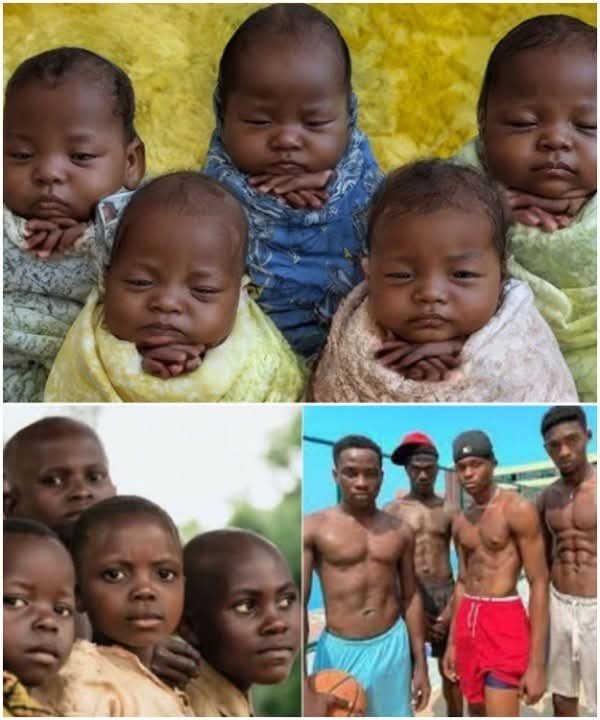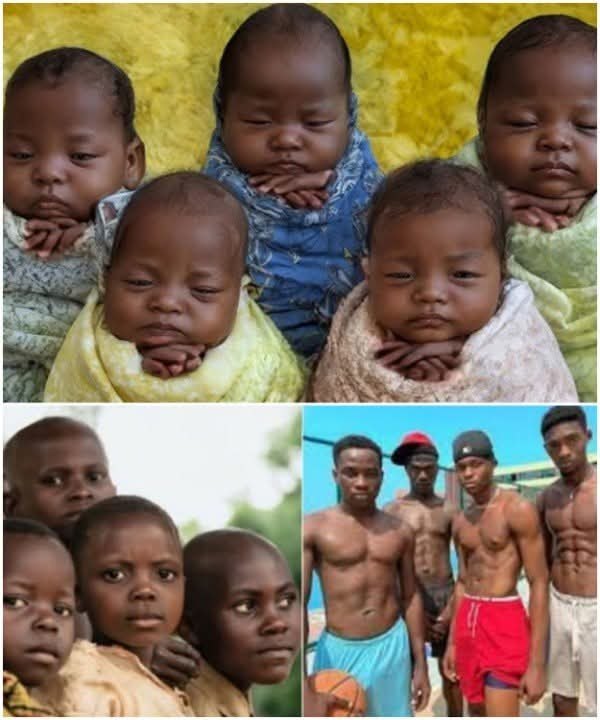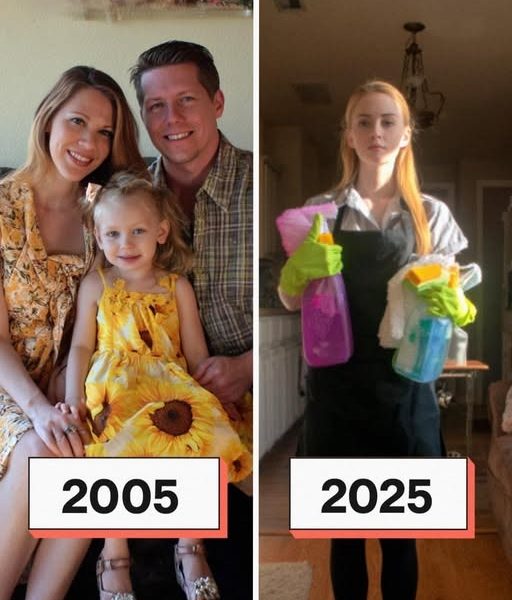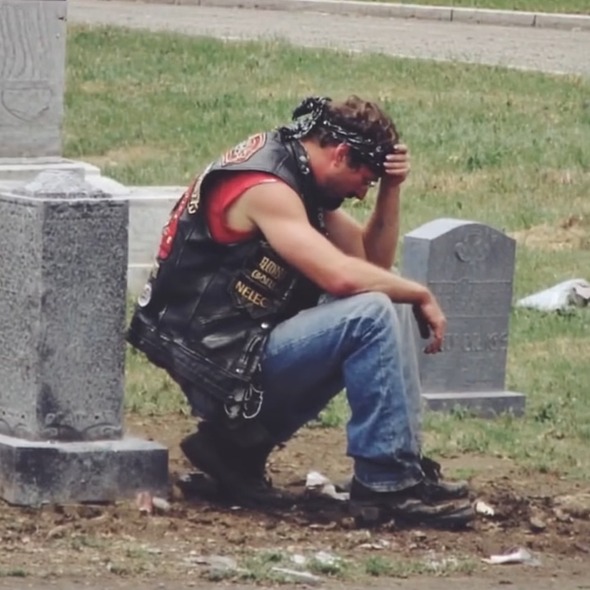A mother adopted five Black boys 27 years ago. She was shocked by what they did years later!
Mon, Georgia— Life took a terrible turn for Gloria Simmons when she was just 35. After five years of marriage and many tries to get pregnant, her husband left her a note on the kitchen counter that said, “You’re not the woman I thought I would have a family with.”
He didn’t even say goodbye face to face. Gloria’s dreams of having a mother appeared to vanish in an instant.
She had been preparing for the family she wanted her whole life. She kept track of her cycles, took hormone therapies that made her sick and kept her up at night, and clung on to hope every month. Every time I had a negative pregnancy test, I felt like I had failed.

Friends were very careful around her, and church members sent her condolences that felt more like pity. Some people told me, “You’re still young.” When people stated, “God has a plan,” they thought it would make the anguish go away.
But Gloria wasn’t only sad about a kid she never had; she was also upset about the life she had pictured for herself, which biology, betrayal, and time had taken away.
After the divorce, she moved back into her late grandmother’s small house in Mon, Georgia. She worked part-time as a librarian and lived a quiet life, mostly out of sight.
On weekends, she took care of her grandmother’s garden. On lonely nights, she sat with a blanket over her lap and asked God why she wasn’t good enough. That all changed on a gloomy Wednesday in 1997.
gach Gloria went to the county courthouse to fill out papers so she could help with a program that helps people learn to read. As she walked by the clerk’s window, she heard a social worker speak about a sad case: five newborn Black boys found together in a cardboard box outside a church in the country.
There were no names or parents, just a message that stated, “I’m sorry.” I can’t give them what they desire. The social worker responded, “They’re fine, but we need to keep them apart.” Nobody is ready to take all five.
Gloria moved forward without thinking. “Give them to me,” she said. The woman was astonished and looked up. “Excuse me?” “I want them.” I want all five of them. The social worker blinked.
“Are you married, ma’am?” Do you have any kids? “No,” Gloria answered softly, “but I have love.” That’s more than they’ve had thus far.
After that, there was a lot of paperwork, background checks, interviews, and skepticism. People whispered, “She can’t take care of five kids on her own.”
Because she’s white, the babies should be raised in their own culture. She probably just wants people to see her. But Gloria kept on going. She passed all the tests, attended to all the parenting classes, and converted her modest house into a nursery with secondhand cribs and quilts she sewed herself.
She hugged each of the boys, who were small, warm, and staring up at her with stories that she couldn’t understand. She called them Caleb, Elijah, Aaron, Micah, and Tobias. She rocked them to sleep every night until her arms hurt, fed them every two hours, and sang hymns to them when they cried. She didn’t sleep for weeks, but she didn’t say anything. For the first time in her life, her home wasn’t quiet. It was real.
Raising five sons was hard. At the grocery store, people stared at Gloria and whispered questions to her at the doctor’s office. They also thought she was a nanny instead of a mother.
Some of her white friends stopped talking to her, and a lot of Black families looked at her with distrust. But Gloria never claimed she was going to save them. She looked for Black role models, enrolled her sons up for cultural education classes, and made sure they knew where they came from. She told them the truth every year on their birthday: “You were left at a church, but you were never forgotten.”
There wasn’t a lot of money. Gloria was a seamstress at night, sold her car, and walked to the library with a stroller that looked like a parade. When her water heater broke one winter, she heated pots on the stove to give the boys a bath.
She couldn’t afford to go on vacation, but every Saturday was “adventure day.” She would take a blanket and a stack of books to the library, the park, or the backyard.
The lads grew up, and so did the issues. Micah got asthma and had to go to the hospital twice in one year. It was hard for Aaron to read. Elijah started to fight at school when kids called Gloria names.
Caleb once inquired, “Why don’t we look like you?” For hours that night, Gloria cried. The next day, she told them stories about family, how they are different, and who they are. She taught them that love didn’t depend on having the same skin hue.
By the time they turned ten, the boys were powerful, full of life, and couldn’t be separated. People started to see them as smart young men instead of kids who had been left behind. Gloria was still tired and broke, but she knew she hadn’t just created a house; she had built something holy.
A lot of time passed. The lads got older and migrated to different locations of the U.S. Caleb went to Washington, D.C., Elijah went to New York, Aaron and Micah went to Atlanta, and Tobias went to California.
Still, they all came home for Gloria’s 62nd birthday. It felt like the home was full again, like when they were youngsters and battled over the last piece of cornbread.
“Mom, sit down,” Caleb murmured, and then he pulled out her chair. Elijah was already in the kitchen with oven mitts on when he said, “Let us help you for once.” Gloria smiled and put her hand on her chest. They weren’t boys anymore; they were men. They all had her heart, yet each one had a different voice and path.
After dinner, they turned off the lights and brought in a little TV. “What is this?” Gloria asked. “Just watch,” Tobias said. There was a photo of Gloria from a long time ago on the television. Her hair was pulled back, and she was holding five infants. She had a big smile.
“One woman made a choice 27 years ago that saved five lives,” a voice remarked. It took sixteen minutes to watch the movie. There were old VHS videos of their boyhood, Caleb speaking, Micah reading an essay he wrote as a child, Aaron talking about how hard it was for him to read, Elijah remembering how he defended her name, and Tobias playing the piano in the background.
The closing sight was a drone shot of a modern three-story brick building with a sign that said “The Gloria Simmons Academy for Forgotten Boys Made Whole.”
Gloria gasped. She said under her breath, “What is this?” “It’s yours, Mom,” Micah said softly, putting his hand on hers. “You made this.” Caleb said, “We all did.”
They told her that it took them three years to build the academy. They used Caleb’s legal expertise, Elijah’s ability to raise money, Aaron’s ability to mentor, Micah’s education degree, and Tobias’s artistic talent.
They bought land in Mon, recruited people, got money, and built it with her in mind. There were dorms that looked like their childhood beds, a library, adventure days on Saturdays, and a garden where they could grow vegetables.
Elijah said, “We’ve already welcomed our first 18 students, and the list of people who want to join is getting longer.” Gloria was crying gently, and her shoulders were shaking. Aaron said, “We did it for you.”
“Because you never gave up on us.” Tobias bent down next to her and put the academy’s badge on her shirt. “You are the founder in spirit, heart, and everything else.”
The next weekend, they drove her to college. A dozen little boys ran out onto the lawn, and staff members stood in a queue to greet her. One of them, who didn’t have any front teeth, hugged her legs.
“Are you the woman from the movie?” he asked. Gloria knelt down. “I guess I am.” “So this is your home, then?” “No, sweetie,” she said in a quiet voice. “It’s yours.”
“You don’t have to look like me to be mine” was written in a frame in every hallway. “Love is stronger than family.” “Family is the choice that changes everything.” In the entryway, there stood a statue of Gloria made of bronze. She had her arms out and five little guys close to her.
The news called her a living legend. Gloria, on the other hand, spent her days reading with the kids, making breakfast, and offering extra desserts to those who needed a little more hope.
She said to her sons one night when they were sitting on the porch, “You boys were the best thing I ever did.” Micah shook his head. “No, Mom.” You were the nicest thing that ever happened to us.
She laughed quietly. “Maybe,” she said. “But look at what we did.” And in the starlight, with the sounds of her legacy all around her, Gloria Simmons finally found peace in the house her love had made.


